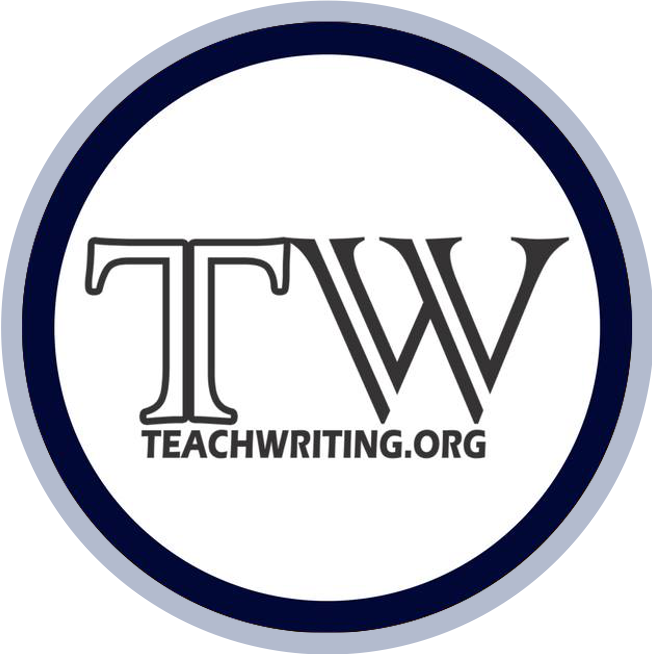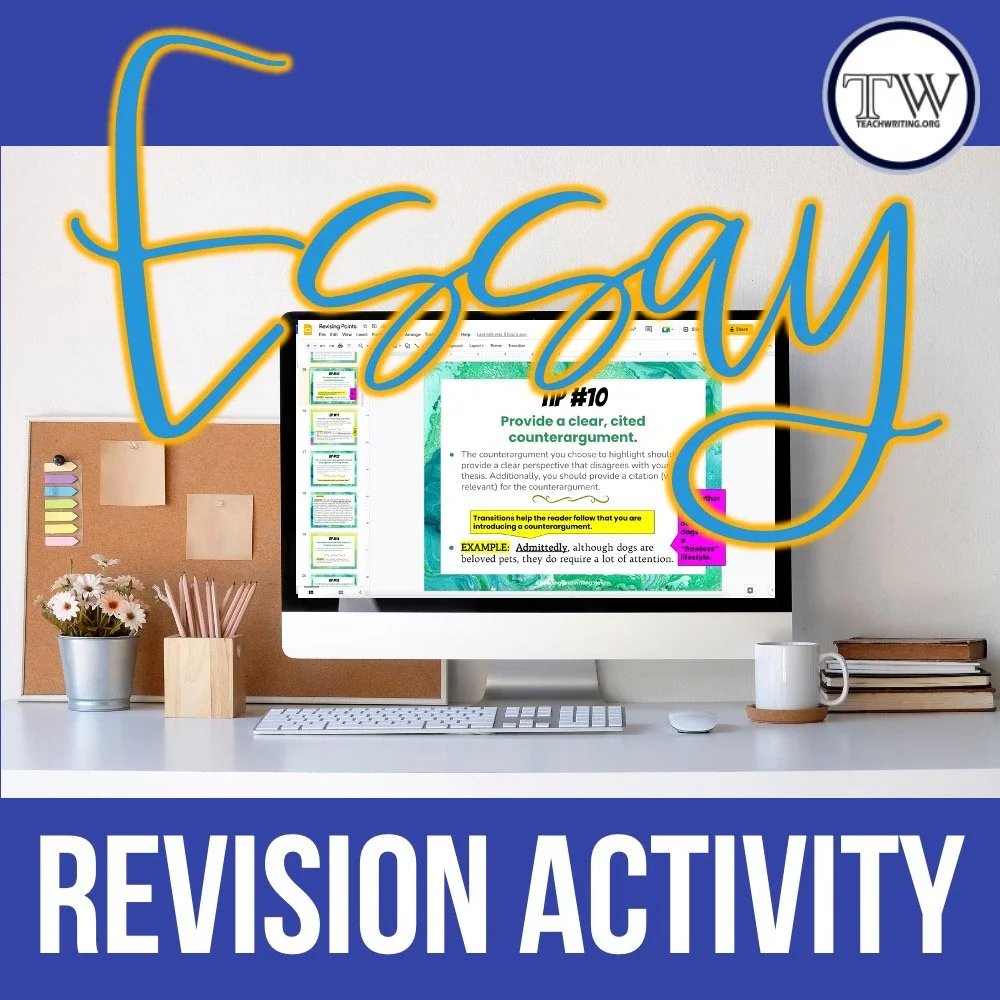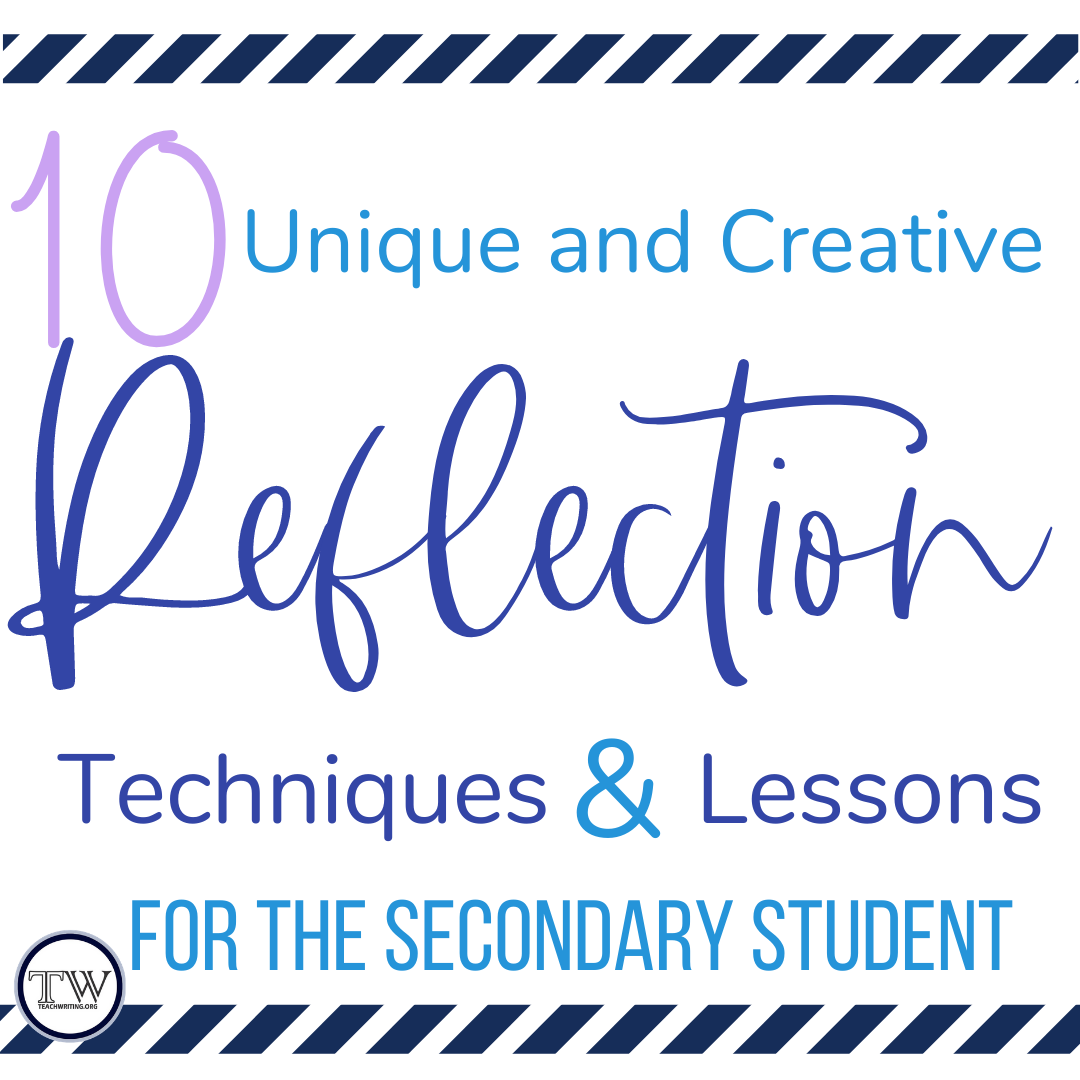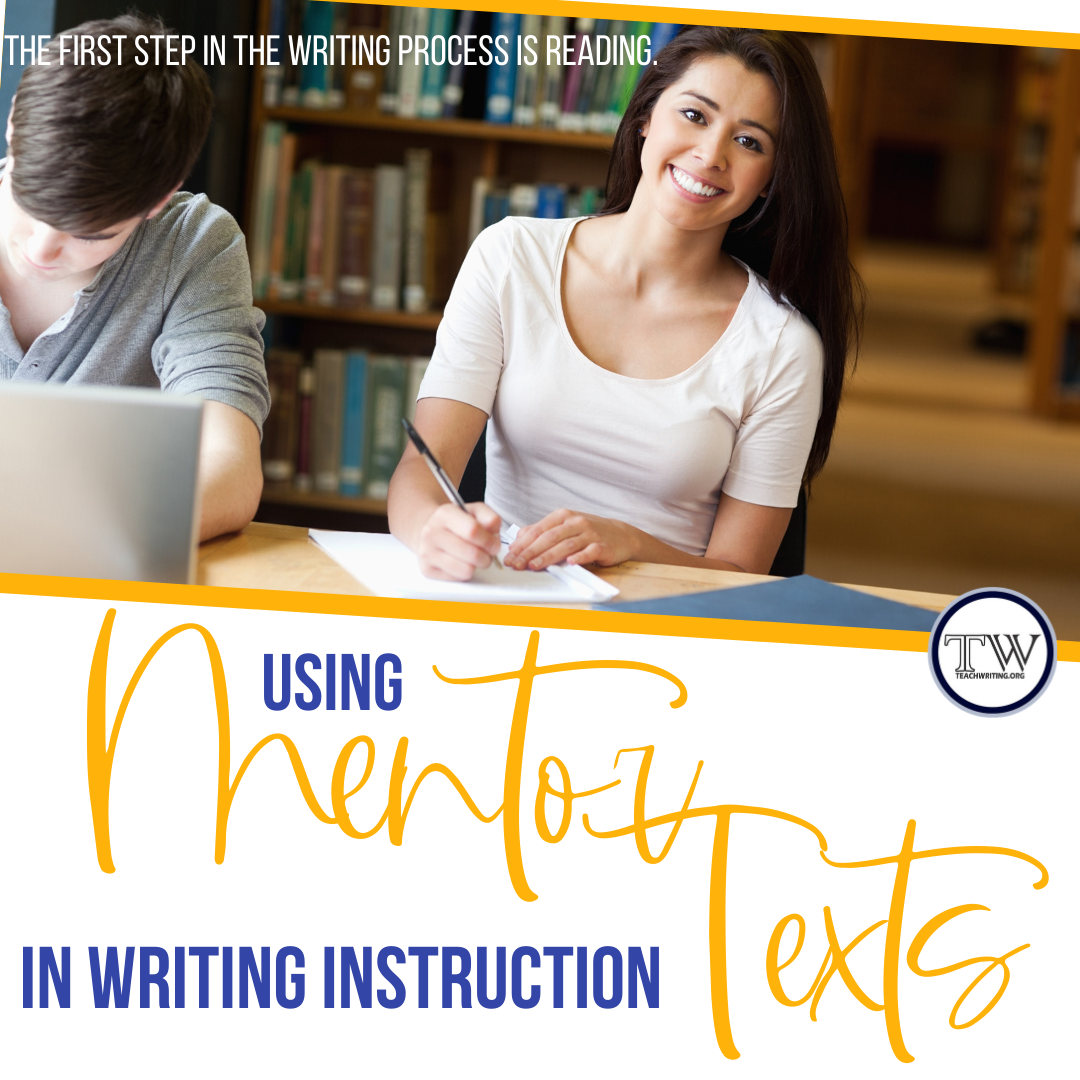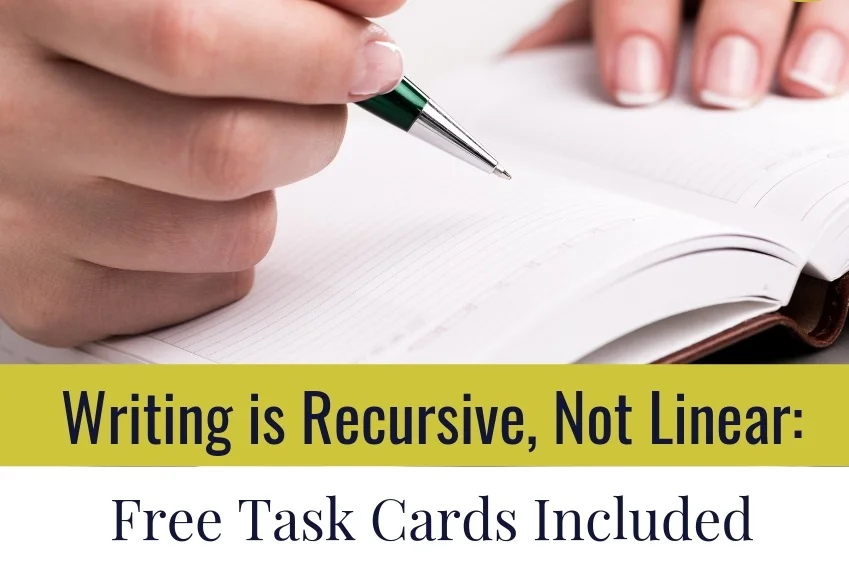Increase engagement with essay revision using this flexible revising points activity for middle or high school ELA.
Read MoreCheck out these games to get your students arguing as a means of targeting persuasive skills such as rhetorical analysis and persuasive writing/ speaking. — by Bespoke ELA
Read MoreWe know as English teachers that writing workshop is a foundational approach to writing instruction in the modern classroom. But if you’re like me, I am always searching for new tips, tools, and resources for implementing writer’s workshop— to make it more manageable for me as a teacher as well as more approachable for my students.
Read MoreEngage middle and high school students in meaningful virtual writing assignments! These digital activities pack powerful learning benefits. Plus, they build confidence in reluctant writers.
Read MoreHow do we take the “encyclopedia voice” (Mariconda) many students come into the classroom having been taught, and turn it into Walt Whitman’s much-lauded “barbaric yawp”?
Read MoreHow can language arts teachers support high school writers? With purposeful feedback and activities, English teachers can structure an environment to grow young writers.
Read MoreEileen Landay and Kurt Wooton founded The ArtsLiteracy Project to bring arts integration into classrooms around the world, and their book, A Reason to Read, shows how it works and why it’s so powerful.
Read MoreI am always looking for ways to make writing instruction more engaging for my students. I love using fun and interesting acronyms to help students as they draft their work. I want these acronyms to be memorable so that students can use these to draft their writing long after my graphic organizers are there to support them.
Read MoreArgumentative writing is a cornerstone of writing across content areas. Essentially, all pieces of writing are an argument.
Read MoreWithin a literary analysis, students are required to think deeply about a given text, then make inferences and provide evidence to support that inference. Not only does the skill of drafting a quality literary analysis response support students in high school English classes, but will essentially define much of their English coursework in college.
Read MoreI yearned for a way to practice skills such as evaluating the sufficiency of evidence and seeing multiple perspectives on a topic. I wished to help them in creating rich and effective arguments with elements of Ethos, Pathos, and Logos. Finally, I needed to find a way to help students in creating effective counter-arguments that actually refute the argument as opposed to simply changing the subject.
Read MoreAs educators, we know how critical reflection is to the learning process. Getting students to reflect- deeply and meaningfully- is often one of the most challenging lessons we teach. I have found that both my middle school and high school students will often scoff at these reflection activities, providing the least amount of effort possible to complete the task they see as meaningless. I have been searching for and creating lessons and activities that will bring interest and engagement to this task. The following
Read MoreNot only is Secondary Sara an experienced middle school ELA teacher at a private school in Ohio, she is also a high school tutor (she started her own successful tutoring business), a coach of a creative writing team, and a teacher author and blogger. Here, she shares her top tips for motivating middle school writers.
Read MoreUnderstanding the many nuances of great writing can seem like a daunting challenge for teachers and students alike. As educators, we are aware of the strong correlation between good reading skills and good writing skills. This is because students are absorbing the author’s craft as they explore amazing works of literature. This knowledge has given rise to the popularity of mentor texts within the ELA classroom.
Read MoreWriting goes all ways: forwards, backwards, sideways, over there, and over here. In fact, the only piece of the writing process that occurs at a set point in time is publishing.
Read MoreTeaching the writing process? Try involving students kinesthetically. Play Doh can work for big kids, too! My high school students absolutely love this writing analogy that walks them through each stage of the writing process as if they were sculptors crafting a masterpiece. Differentiate your instruction with this best-practice, active learning lesson.
Read MoreNeed a fresh idea for getting through to disengaged writers? Reach them with a new kind of prewriting activity, sketchnotes. Check out this post for tips and inspiration for getting started with sketchnotes, plus a fun freebie to guide them through their first sketchnotes paper brainstorm.
Read MoreTeaching writing? Sometimes students shut down before they write a single word. Teachers can address this dilemma by making the brainstorming process meaningful and engaging through differentiation and scaffolding. When students are provided with choices, they feel less helpless, become more confident, and produce better compositions.
Read MoreTeachWriting.org has announced a new writing workshop endeavor for the 2017-2018 school year. This year, the collaborators at TeachWriting are creating DAILY WRITING PROMPTS via their Facebook Page for English teachers in grades 6-12.
Read More